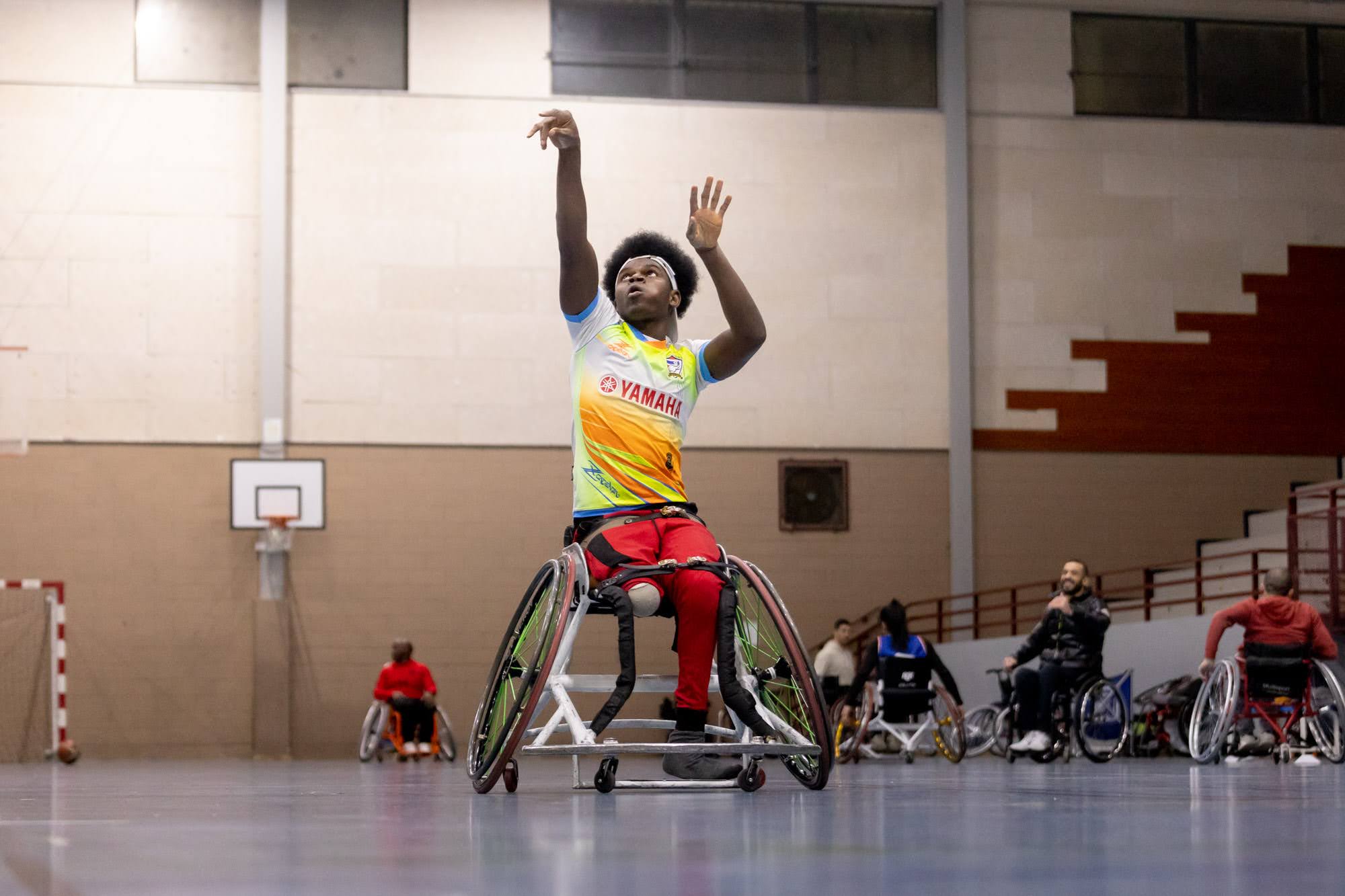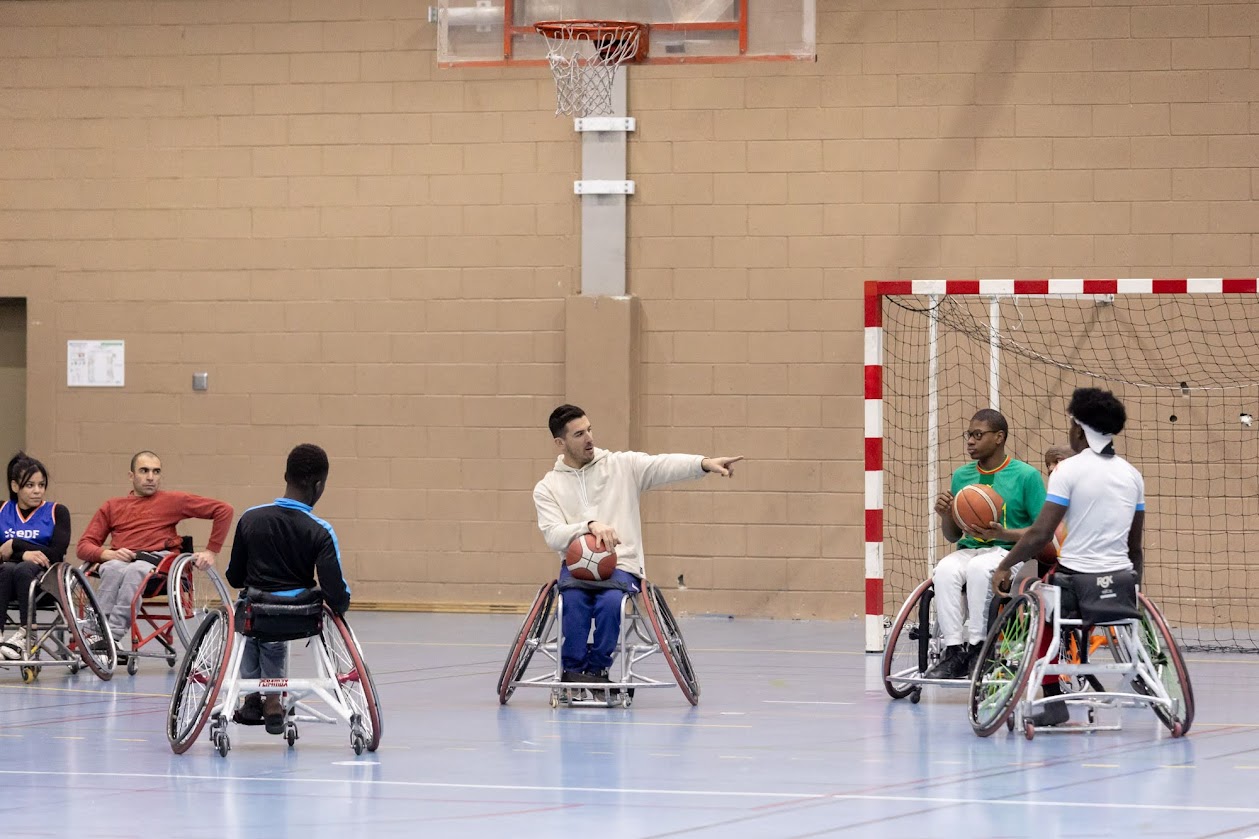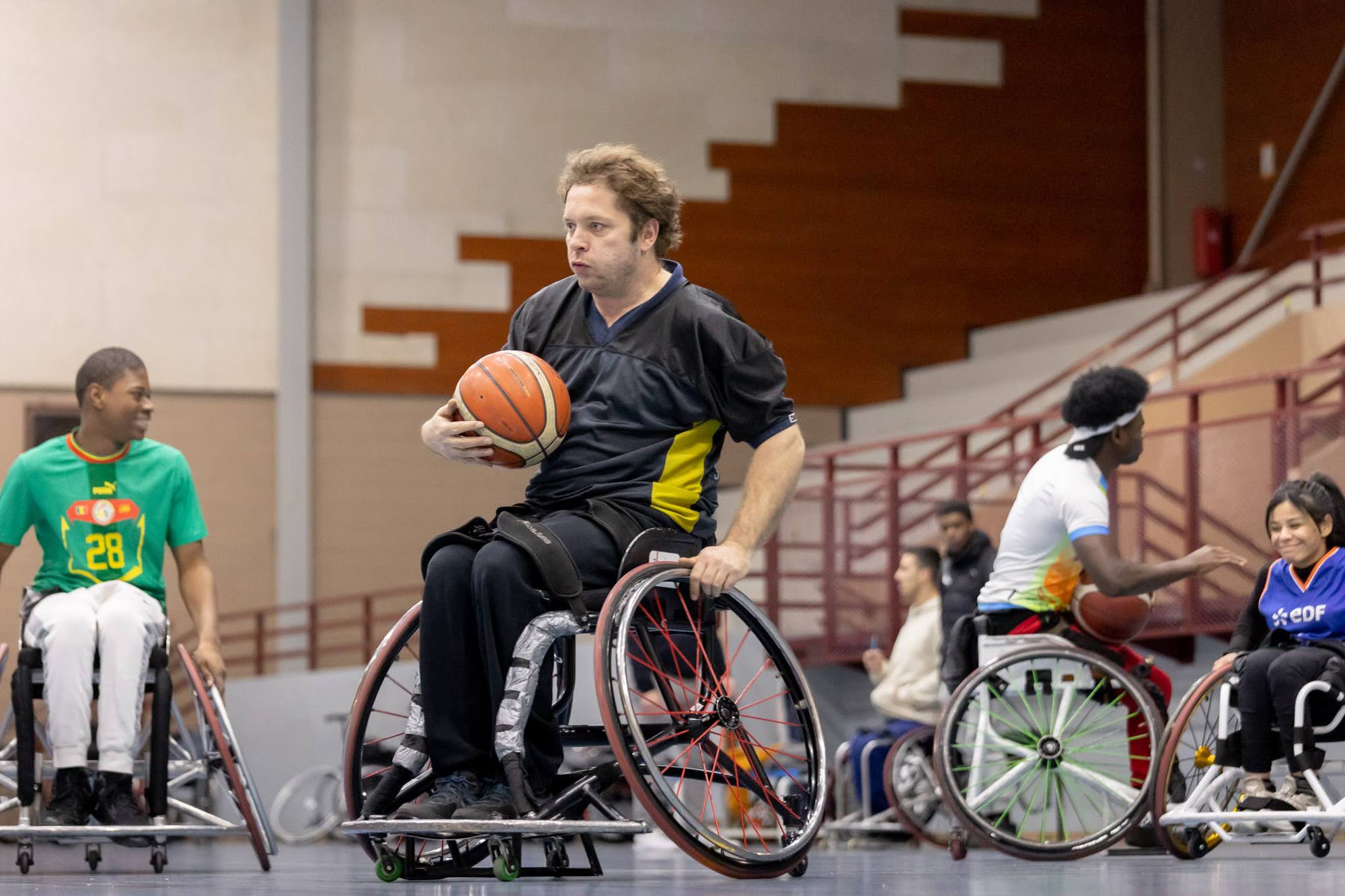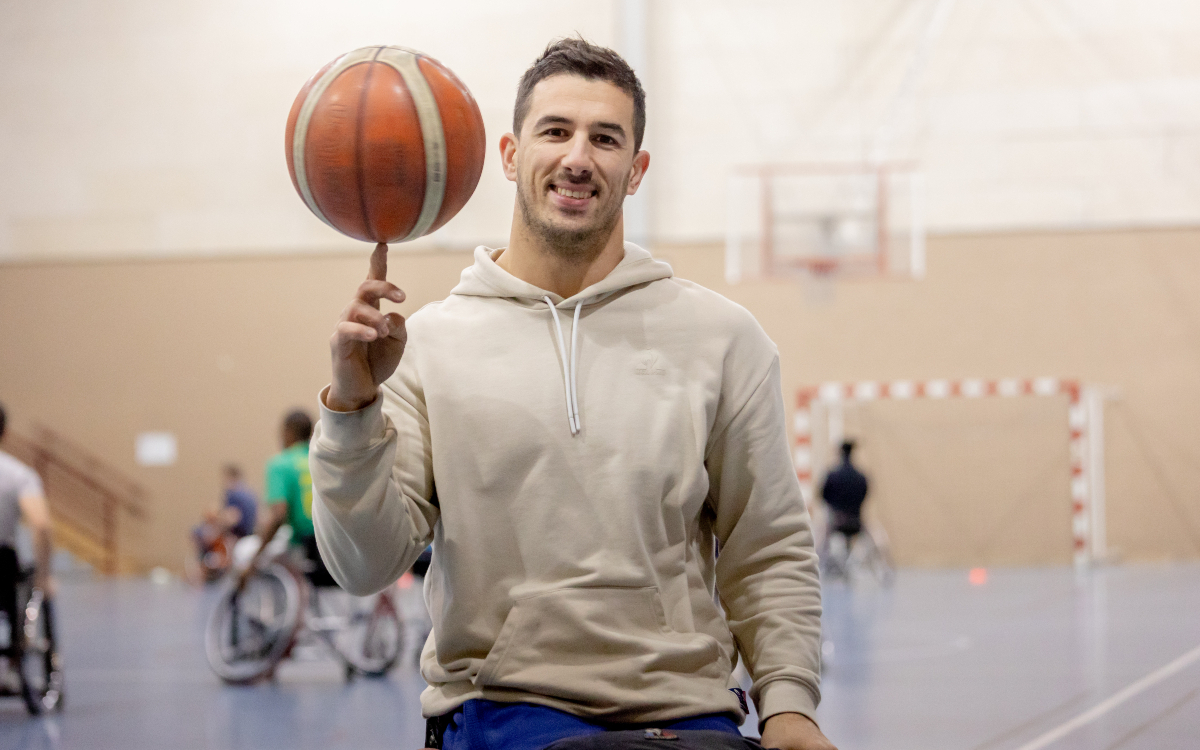Content
Cette page est aussi disponible en français
Sofyane Mehiaoui, playmaker and team leader of the French wheelchair basketball team grew up in Paris, where he set up a club , bringing together disabled and able-bodied players. They will soon be training at the Adidas Arena at Porte de la Chapelle (18th arrondissement).
The Paralympic Games with the French team!
Les Bleus booked their place at the Paris Paralympic Games on April 15th at a tournament in Antibes! Sofyane Mehiaoui is the team's playmaker. The last time the French wheelchair basketball team took part in the Paralympic Games was in Athens in 2004.
The events will take place at the Arena Bercy.
The events will take place at the Arena Bercy.
"Let's start with a bit of slaloming, let's get warmed-up!", Sofyane Mehiaoui shouts as he gets his players going for the start of a training session at the Fillettes gymnasium. The cold winter weather has not dampened the enthusiasm of the fifteen or so wheelchair players who've made their way to the weekly rendez-vous. Welcome to Paris Basket Fauteuil (PBF), the club founded by Sofyane three years ago!
The player turned club founder has one objective: to play at the Adidas Arena which has since been opened. "We could soon be training in one of the Arena's halls this year," explains PBF's founder, who pays close attention to accessibility conditions for all athletes. "I hope this new infrastructure will provide better access to sport for young people with disabilities. There's the tram, buses, and the RER E is not far away which is great for people who can't drive or cycle.
Back to basics in Paris

Wheelchair basketball is played in over 100 countries around the world, with 900 players in France.
Crédit photo :
Joséphine Brueder / Ville de Paris

Sofyane Mehiaoui at a Paris Basket Fauteuil training session in the 18th arrondissement, where he grew up.
Crédit photo :
Joséphine Brueder/Ville de Paris

In just two years, the club has already attracted some thirty members.
Crédit photo :
Joséphine Brueder / Ville de Paris

Sofyane has set up a wheelchair repair workshop in the gym.
Crédit photo :
Joséphine Brueder / Ville de Paris

The discipline is mixed, with talented players like Manel Senni.
Crédit photo :
Joséphine Brueder / Ville de Paris

Sofyane Mehiaoui at a Paris Basket Fauteuil training session, Gymnase des fillettes, 18th arrondissement.
Crédit photo :
Joséphine Brueder / Ville de Paris

Paris Basket Fauteuil club training, Gymnase des fillettes, 18th arrondissement.
Crédit photo :
Joséphine Brueder / Ville de Paris
Founding a club in Paris? Sofyane is familiar with the capital as he grew up in the 18th arrondissement, first in the Barbès, then the Stalingrad neighborhoods. "I went to school on rue de la Guadeloupe, in a school for children with disabilities", he adds.
Affected by poliomyelitis after birth, he lost the use of his legs and had to use a wheelchair from an early age. This did not stop young Sofyane though: "My sports teacher made every sport possible for me. One day, he took us to see a match of the French wheelchair basketball team, and that's when I fell in love".
At the age of 18, he joined his first club: Capssa Paris, in the 15th arrondissement. He then went on to gain experience around France (Corbeil-Essonnes, Meaux, Hyères…). He also moved abroad and played in Italy and Turkey, where he won the Champions Cup in 2013 and 2014 with Istanbul outfit Galatasaray. "I even played for six months in Australia," he smiles.
A will to succeed
In 2021, he came home, back to France: "When I came back to France, I was already thinking about preparing for the 2024 Paralympic Games," admits the French international with a smile.
With the help of the 18th arrondissement town hall, a number of partners and an iron will, he made his dream of founding a club a reality. Purchasing and repairing wheelchairs, moving players around, finding funding… He worked hard for the thirty or so members of Paris Basket Fauteuil.
Equipement is surprisingly expensive: 900 euros for beginners wheelchair, and up to 10,000 euros for competition models. After first buying wheelchairs to get the club going, Sofyane set up a mini-repair workshop in the gym!
Playing basketball for two hours helps me forget my problems
member of Paris Basket Fauteuil
"Sofyane's commitment shows what young people with disabilities can achieve," says Nicolas, 42, who comes from the 11th arrondissement to train every week. "There's a very strong human dimension to this club, which goes beyond sports." For Nicolas, wheelchair basketball means more: "I'm partly paraplegic, so I can't walk or run normally. Playing basketball for two hours helps me forget my problems."
Why try wheelchair basketball?
"Wheelchair basketball requires strength to move the wheelchair, and skill: the hoops are at the same height as in basketball, 3.05 metres off the ground", Sofyane explains. The aim is the same as in "classic" basketball: two teams of five players play against each other for four ten-minute periods. The team that scores the most points wins the match.
"It's a team sport that requires a great deal of intelligence, because you have to attack and defend in a five-man formation. It's also the most played disability sport in the world: there are some sixty clubs in France, several championships, four European Cups, the European Championships, the World Championships, the Paralympic Games…".
Another special feature is that it's a mixed sport, as is the case at the PBF club. "Girls and boys get to play together, because there aren't enough girls at the moment to create a French women's championship," Sofyane explains.
"I hope that other wheelchair basketball clubs will open in Paris, for example in the south-east of the capital. People shouldn't have to travel so far to do something they love."
Sports for all
In wheelchair basketball, each player is classified according to disability, from 1 to 4.5. For example, a paraplegic player is rated 3.0. In France, the sum of the five players must not exceed 14.5 points or a total is 14 points for international matches.
In certain French competitions and in clubs, able-bodied players can also play wheelchair basketball: they are worth 5 points.
>Find out more about wheelchair basketball rules
In certain French competitions and in clubs, able-bodied players can also play wheelchair basketball: they are worth 5 points.
>Find out more about wheelchair basketball rules
Get
all the news on disruptions and opportunities related to the Games with the
Paris Infos Jeux 2024 newsletter.
We want to hear from you!
Was this information useful to you?
Please note: we cannot reply via this form (please do not include any personal information).
